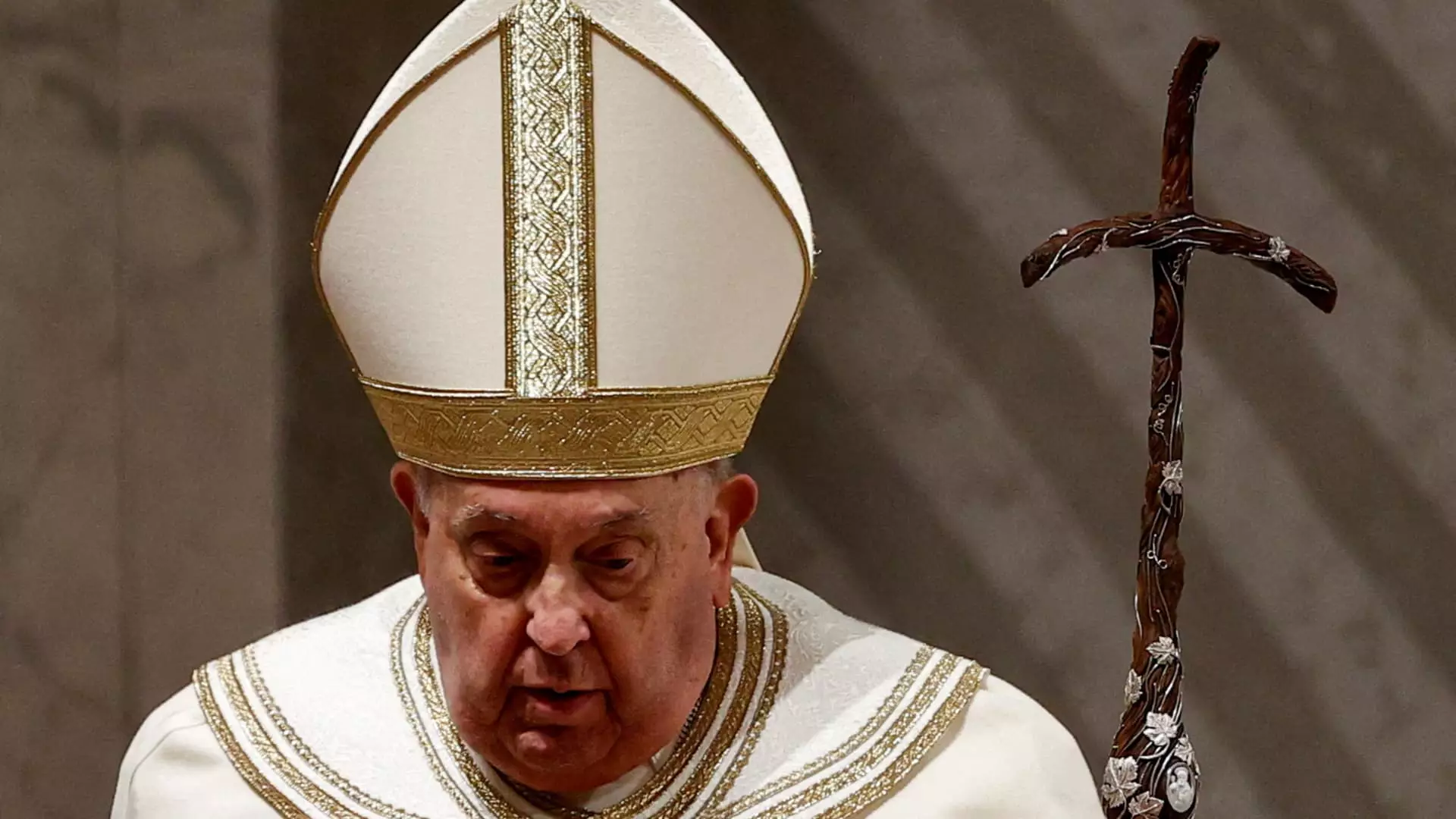Pope Francis is currently facing significant health challenges as he battles double pneumonia, a serious lung infection that has prompted his hospitalization in Rome. The Vatican confirmed on Sunday that the pope, 88 years old, spent a “tranquil” night in the Gemelli hospital, where he has been recovering since February 14. Initially, the pope sought medical attention due to breathing difficulties, which evolved into a pneumonia diagnosis affecting both lungs. This recent health scare has raised alarms, given that the Vatican described his condition as critical for the first time on Saturday.
Double pneumonia is no trivial condition; it involves the inflammation of both lungs, which can leave patients struggling to breathe. In the case of Pope Francis, the infection has been characterized as “complex,” attributed to a combination of microorganisms. This complicates his treatment and underlines the urgency for medical intervention. His history of lung problems, notably stemming from pleurisy during his youth and the partial removal of one lung, makes him particularly susceptible to such infections. Specialists treating the Pope have warned of the heightened risk that the pneumonia could potentially spread beyond the lungs into his bloodstream, leading to life-threatening complications such as sepsis.
As the situation progressed, the Vatican reported that the Pope required supplemental oxygen and even blood transfusions to manage declining platelet levels—an indicator of underlying anemia. This adds another layer of complexity to his condition since platelets are crucial for clotting and overall blood health. Doctors are carefully monitoring his health, and their insights highlight not only the frailty of the Pope’s age but also the intricacies involved in treating senior patients with pre-existing health conditions like his.
Pope Francis has been the leader of the Catholic Church since his election in 2013, and his health concerns have captured the attention of millions worldwide. Public interest is driven both by his role as a spiritual figure and the compassion he has shown toward various global issues. As news about his condition circulates, many are left to grapple with the potential implications of his health for the Church, especially considering that severe disease in the elderly often leads to more significant complications and a prolonged recovery period.
As Pope Francis continues his recovery, the Vatican has not offered detailed updates beyond the basics of his health status, leaving many to speculate about the broader effects of his illness. The coming days will be critical for determining both his immediate prognosis and potential long-term consequences for his papacy. The condition of the pontiff is a poignant reminder of the vulnerabilities associated with aging—a reality that resonates not just within the religious community but across the globe as society confronts its own health issues in an increasingly aging population.


Leave a Reply